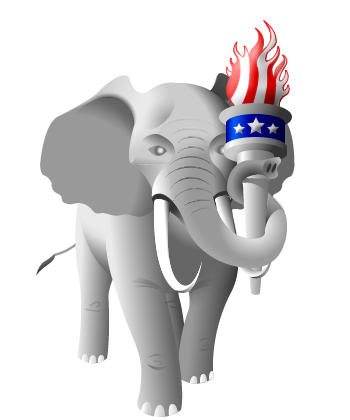What is the proper role of government? Should the legislature be limited to maintaining the laws that apply to us all, and leaving us otherwise to pursue our affairs, or should it be directly managing, in detail, a broad array of activities and their outcomes?
The Minnesota legislature this year has opted for the latter course. It has also been very busy. It has found reason to exert detailed control of scores of local and individual issues. A few examples of bills passed include health care and the economy, but also dozens of other areas, like the Central Corridor, nuclear power, online gambling, baby DNA, and ethanol. I also see at least one explicit bailout.
What is not dictated in state law is often compelled with funding inducements or restrictions to local governments and school districts.
The Minnesota Legislature is deeply involved in the business of managing our daily lives. Almost every aspect, from the things we buy, to what we teach our children, to local school curriculum is affected by each session of the legislature.
At the Federal level, the picture is much the same. Despite explicit constitutional prohibitions against some types of involvement, the US Congress continues to regulate, mandate, dictate and prohibit. The US Congress is in session every year, and is often busy passing laws that have broad effects. By using the IRS, the US Congress can exert particularly detailed control of economic activity. By choosing which income will be confiscated by the tax man, citizens are given powerful incentive to behave as Congress desires. (read more here and here)
A particularly alarming trend is that Congress sees this power as without limit or constitutional consequence. Chuck Schumer (S D-NY)recently threatened the legendary bonus recipients at AIG with seizure of their bonuses by way of a high-rate tax. The constitutional term for this is bill of attainder. I do not understand how Mr. Schumer reconciles his oath of office with this behavior.
Most recently, in response to a "crisis", the Federal government has requested from Congress, and has been granted, broad and poorly defined authority to spend hundreds of billions of dollars to directly affect any specific enterprise it so chooses. Targets include AIG, GM, General Electric, Citicorp, and many, many others. Government funds are now used to justify a role in day to day management, as highlighted most recently by the "firing" of Rick Wagoner as CEO of GM, and the forced bankruptcy of Chrysler.
One victim of the bailouts is their competitors. Think of Ford Motor Company.
The "Big Three" went hat-in-hand to Washington last fall. Ford - to its credit - broke ranks and said "no". Today, GM and Chrysler have the US Government in their corner, and "Failure" is no longer an option. In practical terms, this means that they can do things that Ford cannot. If GM or Chrysler price their products very aggressively, and drive Ford to great financial distress, is this illegal "predatory pricing"? In normal times, the Justice Department would be expected to prosecute. Will (foolish) stockholders invest in Ford, knowing that they are competing with the US Government?
In the end, we as a nation have to be clear on what we want our government to do.
The picture painted above is one of massive and constant interference in our lives. It is easy to see where this leads. If specific outcomes are the goal, then more interference is needed. Mr. Obama has articulated this vision, with cap and trade, universal health care, and his education plans. History suggests that these programs will not be sufficient, and ever more involvement will be required over time.
Just as the bailouts require more bailouts, health care "reform" will require subsequent waves of "reform", and cap and trade regimes will require more "adjustment". None of these "fixes" will return autonomy or freedom to the people, but will tighten control in an effort to squeeze out the last bits of error in these expertly planned systems.
The alternative is the radical idea that government is not the master, but the servant of the people. It is to presume that we all have the right to pursue our affairs without the interference - or help - of the government. If we were to choose this course, we would limit our government strictly to a set of enumerated powers, and jealously guard our freedoms. We would work to ensure that laws were minimal, and enforced on everyone equally. Legislatures would be expected to put high priority on maintaining the body of laws in a way that maintains stability in the law, with minimum changes from year to year. We would see arrogance in the idea that the government could dictate outcomes and manage the affairs of the People.
I'm a radical.













No comments:
Post a Comment